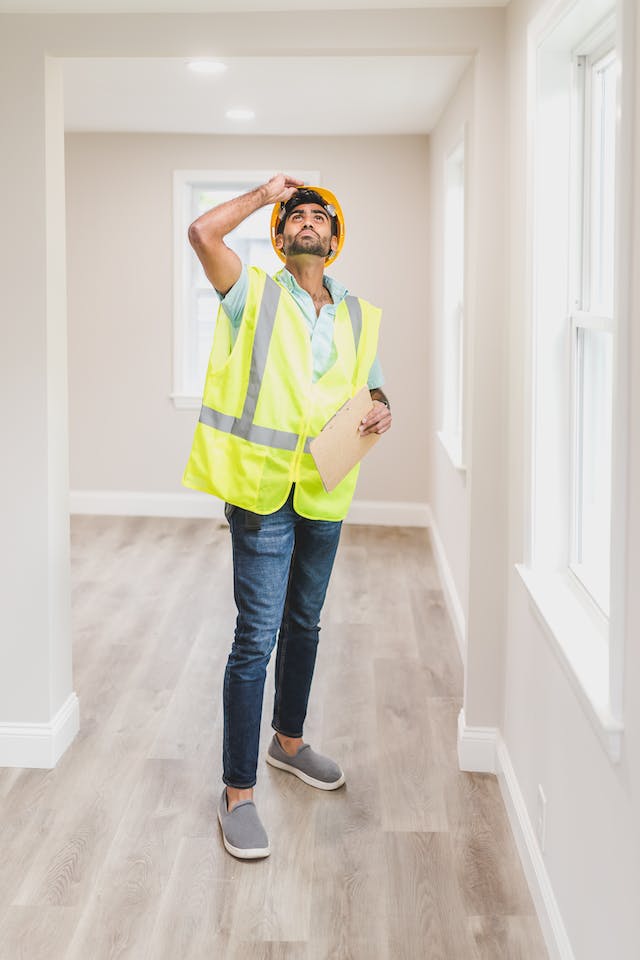It really is difficult to find good help these days, especially when it comes to working alongside contractors during the building or renovation of a household. That’s because most homeowners are rather impulsive or impatient when looking up construction workers online. For all you know, whoever you hire to renovate part of or build an entire household from start might defect from whenever you tell them to do and end up doing something else. Not only will this end up wasting your time, but will also consume much more of your hard-earned investment.
That’s why you need to ensure that you’re working with a contractor who can understand you and gives you the right outcome for your interior or exterior home renovation needs. But when you do this, you also need to ensure that they remain focused on their job.
And before you go and hire a contractor for a job, you need to be sure that they’re reliable, have a legitimate work record, previously satisfied clients, have a full-fledged team of qualified and experienced subcontractors, have the proper references and qualifications, and are also licensed as well as insured.
Here are some of the best ways on how to work with contractors:
1. Simplify Means of Communication
One of the best ways of working with a contractor is to ensure that the means of the communication between you and them is crystal clear and easier. You can do this via video-conferencing tools such as Skype, Whatsapp, or anything similar. Be sure to create group channels so they can send messages instantly to anyone who deserves to be in the know in that group. Not only will this help boost productivity, but also improve face-to-face communication.
2. Prevent Allowances
Allowances are line items in a contractor’s bid for anything that hasn’t been determined yet. For instance, if homeowners haven’t picked plumbing hardware for their new master suite, contractors will include an allowance number as a placeholder in the budget.
But with a vast array of price points available for those products, a builder’s estimate could be significantly lower than what homeowners might end up spending.
That’s why you need to sort out product selections and material to get rid of as many allowances as possible before the contractor gives you the bid for the job. If not that, you can give your contractor a ballpark price for the kind of materials you want.
3. Ensure That All Agreements Are Clear
When deciding on the contractors you’re about to hire, just be sure that every agreement is as complete and clear as you need it to be. These documents will indicate how your work is coming along. This is something that you’ll also need to refer back to just in case there are any problems.
4. Keep Track of the Work
Even if you trust the contractor that you’ve hired for the job, it’s always best to keep a check on things to make sure everything is going just as you want it to and keep a record of it. This way, the quality of the work involved isn’t by any means inferior to what you’re looking for, and that you can identify any issues before they become a problem.
For instance, you can check the model numbers on your appliances to ensure they match with the ones on the receipts. Check the position of the electrical fittings and windows using the constructor’s plans and blueprints. Don’t hesitate to point out anything that you find inappropriate. The best way to keep track of things is to ensure your contractor is using proper labor tracking strategies. Read this article to learn more about those strategies.
5. Keep the Changes in Writing
As soon as your project is underway, there’s always the possibility of something unpredictable happening which could cause your plans to fluctuate from time to time. That’s why, it would be better if you could put everything that happens into writing, like keeping an online spreadsheet or excel file and be sure to update it and have it signed by every party involved. Written agreements are a sure way of protecting both you and your contractor to ensure that there are no disputes cost by verbal agreements surrounding the final bill.
6. Pay for Only What’s Been Completed
When either remodeling or building a new house, your contract should overtly list the series of payments that should be made once certain parts of the jobs are done. For instance, your contract should publicly state that you’ll be paying in three equal installments, with the last one that will be made only after the entire project has been completed and after both, you and your contractor are satisfied with the overall work.
Just be sure never to put down an upfront cost of more than 10% as doing so would mean that you’re handing over too much cash before the job is completed. The contractor should get all the essential supplies on credit.
7. Make Collaboration Fun
Working with a general contractor may seem like hard work, but it doesn’t necessarily have to be. As a matter of fact, you’ll be surprised to know that one of the best ways to ensure quality work from a contractor and their construction crew is to make them feel like working for you is fun. This means that you need to be decisive with them and be sure to give them a prompt check-in for those areas that you agreed upon.
Besides that, you can be friendly and inviting to the workers, as doing so will surely motivate and rile them up to work better for you. You can do this by:
-
Always greeting them in the morning
-
Giving them a bathroom to use
-
Serving them some cold beverages on a hot day
-
Congratulating them on completing some aspects of the project.
